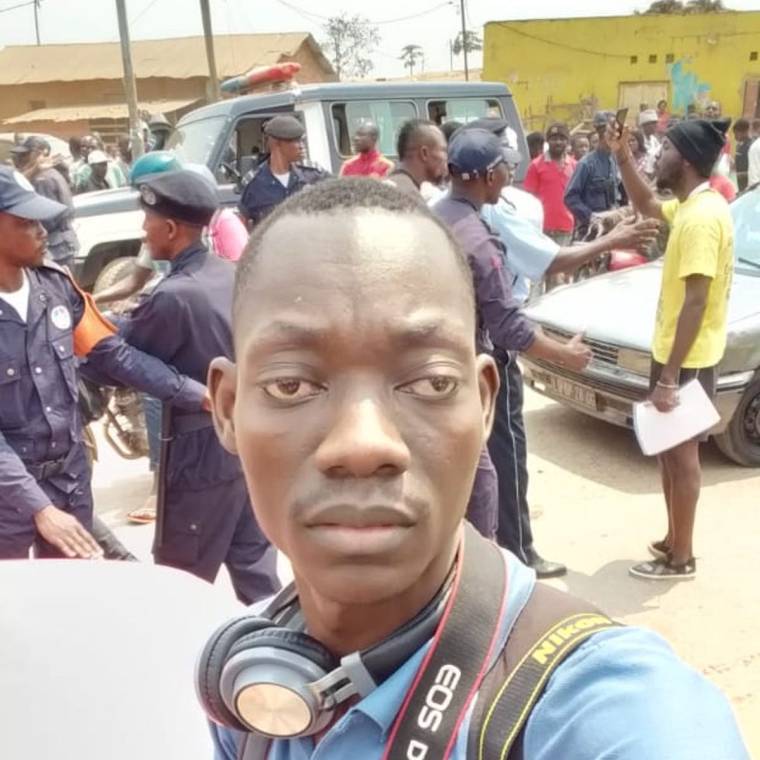On July 1, 2021, Angolan police detained Jeremias Kaboco, editor of privately owned news website Wizi-Kongo, in the northern city of Uige while he was covering a protest by teachers demanding unpaid wages, according to reports and the journalist, who spoke to CPJ via a messaging app call.
Kaboco told CPJ the officers forced him into a police van, despite identifying himself as a journalist; he added that he was not demonstrating. His press identification was displayed on his chest, he said, and he was carrying a professional camera. Kaboco reports for Wizi-Kongo, which covers general news from the region, according to the journalist and CPJ’s review of the site.
Eleven teachers were also taken into custody, Kaboco told CPJ, adding that the police reacted as though the protesters were dangerous criminals. “They drove past once to assess the situation and returned shooting rubber bullets and tear gas at all of us,” he said.
Kaboco and the teachers were forced to lie on the floor of the open police van and curl up uncomfortably under a bench where the officers were seated, he said. It was difficult to breathe under those circumstances, especially since he was wearing a mask to protect from COVID-19, the journalist said.
After the officers drove around for about 40 minutes looking for more demonstrators, Kaboco and the teachers were taken to the local police station to be processed, he said.
During the trip, the officers shouted at Kaboco and threatened to beat him and throw him in a cell if he resisted in any way, he said, adding, “It was a day of terror I had never witnessed.”
The police briefly confiscated Kaboco’s phone and camera, but did not erase any content, the journalist said. He was at the police station for about two hours until a fellow journalist, Moniz Francisco, a local correspondent for the U.S. Congress-funded Voice of America, arrived with a lawyer to help get him released, said Kaboco. He was let go without signing any release documents and without any explanation, he said.
Francisco told CPJ via messaging app that police abuse against independent journalists in Uige province is not new, and that he had also been briefly detained and threatened by police on April 17 while covering students protesting tuition increases.
Asked by CPJ in a phone interview to confirm whether Kaboco had been held at the station for two hours, Freitas Zama, spokesperson for the Uige police, said that he was not officially detained because he had not been placed in a cell. Police on the ground had received orders not to make arrests, the spokesperson added.
Zama also said that Kaboco was not considered a “licensed journalist,” since he was not affiliated with any known media organization.
Kaboco said the police did not bother the journalists from state media who were covering the demonstration. He believes he was targeted because he worked for a private media outlet that exposes corruption and produces independent journalism “which those in power can’t vet,” he said.
